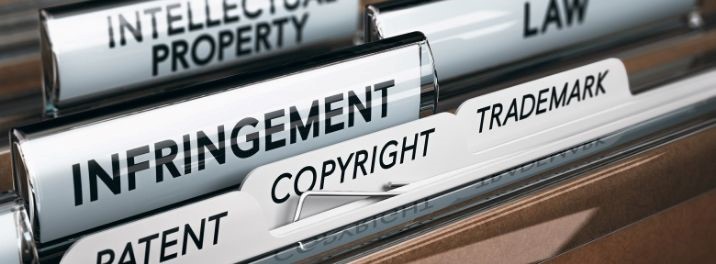近日,在Amarin Pharma诉Hikma Pharmaceuticals USA 案(编号2023-1169)中,美国联邦巡回法院推翻了特拉华州地区法院的裁决,认为Amarin的诉状合理地声称Hikma积极诱导了医疗服务提供者的直接侵权,不过同时还表示 “可能同意地区法院(和Hikma)”认为Hikma的缩减标签本身在法律上并没有推荐、鼓励或推动任何侵权使用。
Duane Morris & Selvam Welcomes Intellectual Property Director Li Zheng in the Shanghai Office
Shanghai, 13 May 2024 ― Dr. Li Zheng has joined Duane Morris & Selvam LLP as a Director in the firm’s Intellectual Property Practice Group at its Shanghai office. Prior to joining the firm, he was with King & Wood Mallesons, one of China’s top tier law firms.
美第九巡回法院开启商标诉讼送达新途径——外国被告亦可通过USPTO完成送达
2022年8月,在美国洛杉矶的一家名为圣安东尼酒庄诉某嘉兴公司商标侵权纠纷一案的上诉中,美国联邦第九巡回法院推翻了原审法院的错误结论,裁定《兰哈姆法》(the “Lanham Act”)第1051(e)条的送达程序不仅适用于美国专利及商标局(下称“USPTO”)的行政程序,同样也适用于法院程序,即针对外国公司的商标诉讼可直接向USPTO完成送达。
按照《兰哈姆法》第1051(e)条的规定,居住在外国的商标申请人,可以指定一个居住在美国的人作为在影响该商标的程序中接受送达通知或程序的受送达人。如果该商标申请人拒绝指定某人或无法找到被指定人,可以通过向USPTO的局长向该商标申请人完成送达。
NFT数字资产与知识产权的碰撞
随着诸如NFT(非同质化代币)的数字资产在如今的Web 4.0时代越来越受到关注,相应的知识产权问题也不可避免地产生了。知识产权通常包含专利、著作权、商标与商业机密。但当谈及NFTs时,人们大多注意的是著作权与商标问题。
Intersection of NFT and IP – Developments to Watch
As digital collectables such as NFTs (non-fungible tokens) become more popular in our Web 4.0 era, more IP problems are inevitably created. For those new to this field, IP typically refers to patents, copyrights, trademarks and trade secrets, but in the world of NFTs, copyright and trademark issues generally get the public’s attention.
Continue reading “Intersection of NFT and IP – Developments to Watch”
了解新加坡NFT消费者保护
非同质化代币(NFT)是区块链上的加密代币,其可以证明数字资产的所有权和真实性,也可以被看作是有所有权证的数字数据。NFT是不可替代的,因为没有相同的两个NFT,每个NFT都有唯一的识别号和元数据。
作为买卖数字艺术品的一种模式,NFT正变得越来越流行,其允许艺术家将其真实的数字艺术品货币化,否则这些数字艺术品很容易被复制。至关重要的是,NFT可以与数字艺术品和实物艺术品一起证明出处。此外,某些NFT可能涉及卖方向买方提供通行证,该通行证允许NFT持有人获得独家商品或服务,包括活动、订阅、内容或限量版产品。 Continue reading “了解新加坡NFT消费者保护”
Understanding Consumer Protections for NFTs in Singapore
Non-fungible tokens (NFTs) are cryptographic tokens on a blockchain that can prove the ownership and authenticity of a digital asset, which can also be considered as digital data with a certificate of ownership. NFTs are non-fungible because no two NFTs are the same and each has a unique identification code and metadata.
NFTs are becoming increasingly popular as a mode to buy and sell digital artworks, permitting artists to monetise their authentic digital artwork, which could otherwise easily be copied. Crucially, NFTs can be used with both digital and physical artwork for establishing provenance. In addition, certain NFTs may involve the seller providing the buyer with an access pass, which allows NFT holders access to exclusive goods or services, including events, subscriptions, content, or limited-edition products.
Continue reading “Understanding Consumer Protections for NFTs in Singapore”
The Metaverse and Its IP Implications – It is still a “Wild, Wild West” out there
The topic of the Metaverse has generated a great deal of enthusiasm and debate in recent months. For example, Facebook changed its name to “Meta” with lots of fanfare. In another headline, Nike purchased an NFT (non-fungible token) designer company, RTFKT Studios, and appeared ready to use virtual athletic shoe NFTs to generate exposure, as well as to begin selling virtual shoes. Also, a personal injury law firm in New Jersey decided to open an office in Decentraland, claiming to be the first-ever personal injury law firm in the Metaverse.
Even more recently, as of the week of 2 February 2022, a major law firm is opening a virtual office in the Metaverse in the fashion and retail district of browser-based 3D platform Decentraland.[1][2] It is the first major law firm to open in the Metaverse.
Continue reading “The Metaverse and Its IP Implications – It is still a “Wild, Wild West” out there”
Intellectual Property Protection
What does IP mean?
Intellectual property (IP) refers to creations of the mind, such as inventions; literary and artistic works; designs; and symbols, names and images used in commerce. IP represents property rights and is protected in law by, for example, patents, copyright, industrial design and trademarks, which enable people to earn recognition or financial benefit from what they invent or create.
What advantages do IP confer upon a company?
Companies, large and small, need to set themselves apart from others in order to compete successfully in the market place. For technology companies, their R&D efforts are often captured as inventions and proprietary technology. Inventions and proprietary technology are generally protected as patents and trade secrets, respectively. Without adequate protection, which often requires setting up an internal process to document and harvest the fruits of their R&D efforts, companies would be replaced by competitors, and lose out. Companies such as Intel, Microsoft, IBM, Nvidia, Apple, and Huawei are such IP owners, to name just a few.




